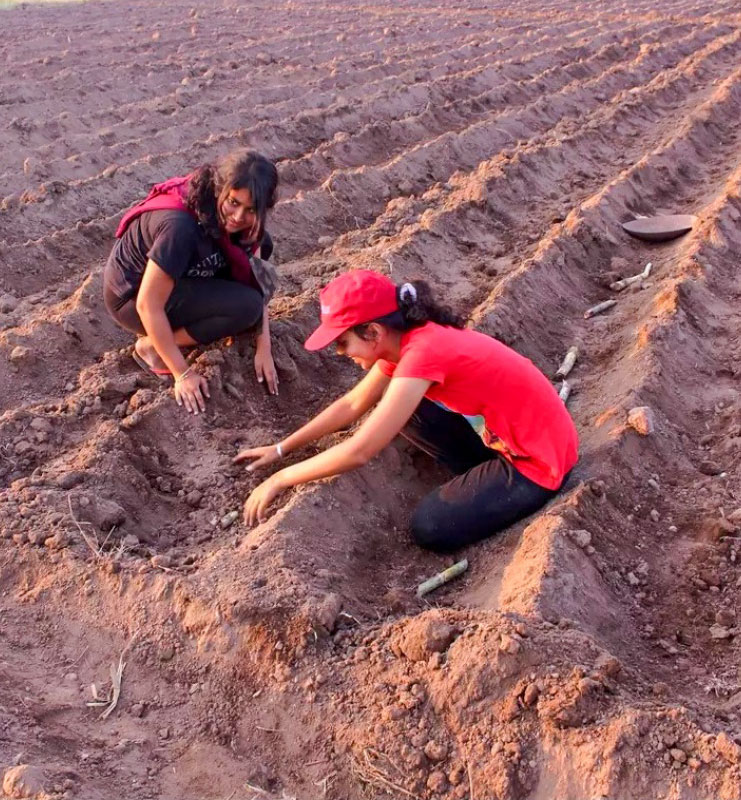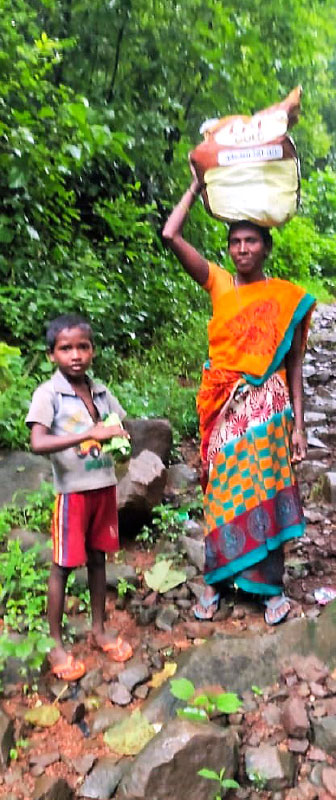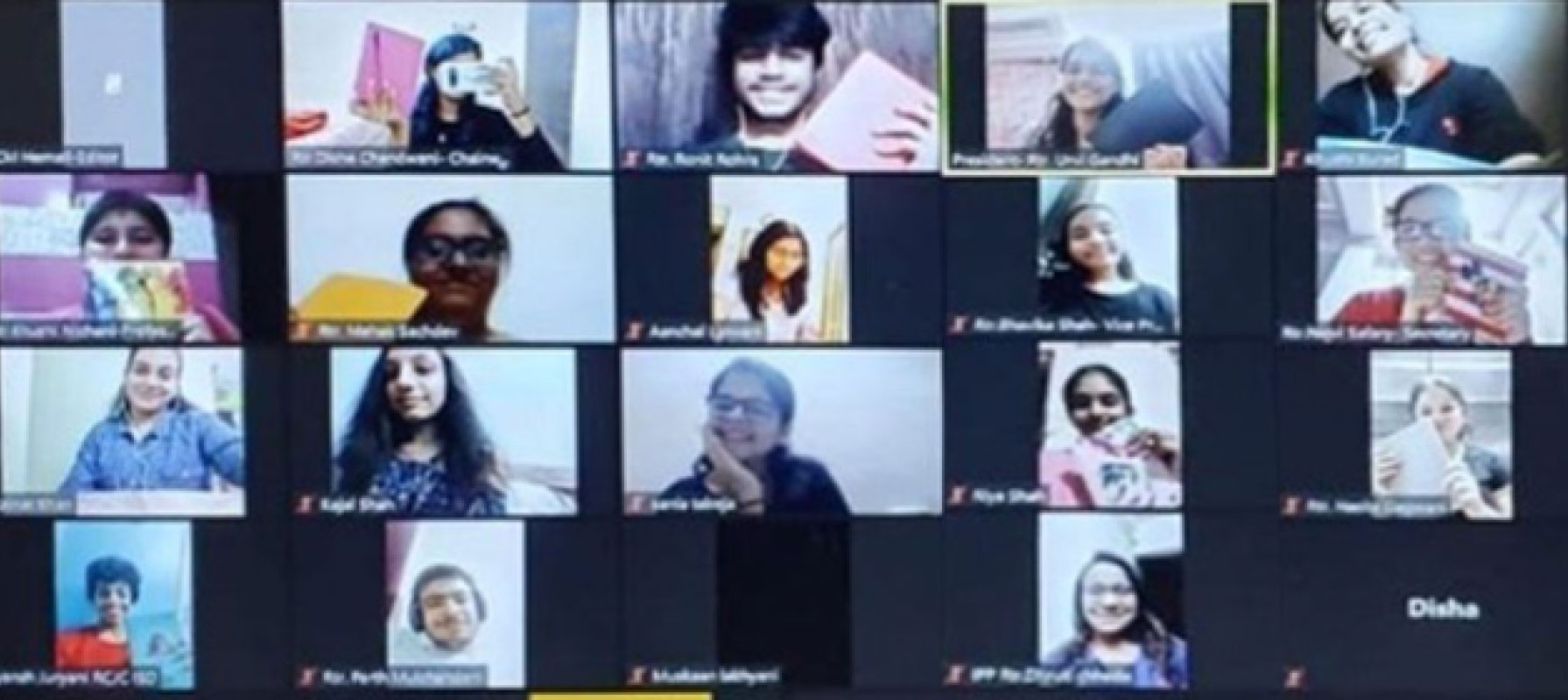Giving is the new cool for Mumbai’s Rotaractors
When the taskforce of the Rotaract Club of H R College, RID 3141, wrapped their young minds over a set of grim statistics which pointed out that 16.3 crore people in India lack access to safe drinking water, 28.7 crore people lack basic education and 20 crore people have no access to reliable power, they decided to do something about it.
“Everyone wants to see change, but no one wants to be the change. So we said let prepare ourselves to be that change,” says Jinay Parikh, director of the club’s taskforce. Hence was born Aashayein-Adopt A Village, a community initiative with the objective to do holistic development of rural villages in Maharashtra. Their most powerful mantra was collaboration.
Carried out in five villages in Ahmednagar district, the Rotaractors focused on water and sanitation, electricity and education. In collaboration with the Watershed Organisation Trust, the Project Boon was started, “under which we have built 14 wells, four check dams and a number of hand pumps,” says Purvi Todi, co-director of the taskforce team.
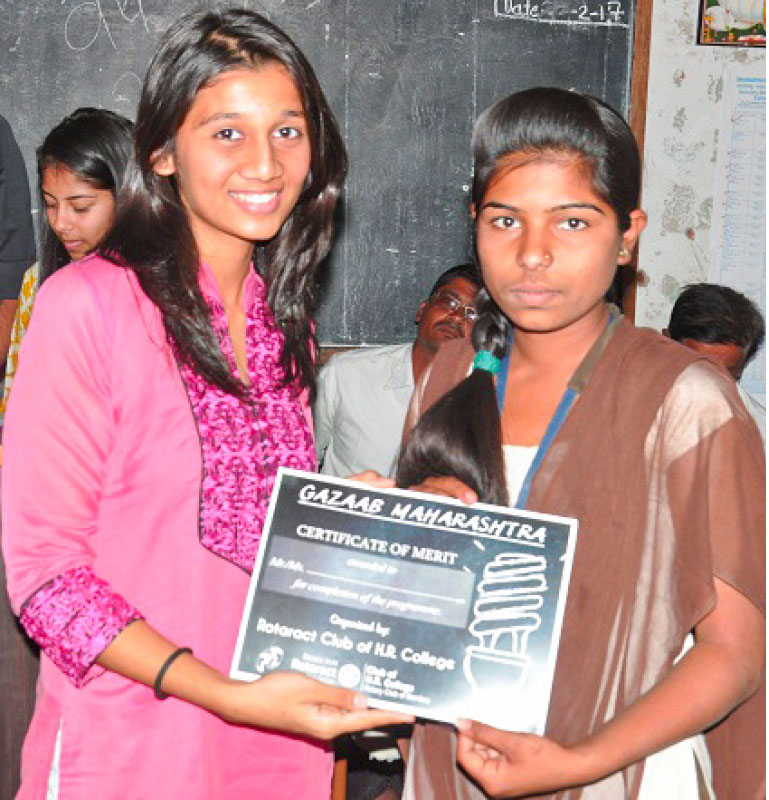
Next, partnering with the Liter of Light, an organisation that has put together an open source design for a low-cost tube light that refracts solar light to provide daytime interior lighting, “we have installed more than 150 solar powered lights, including community street lights, study lamps and house lights, in these villages,” says Parikh.
For the education and entrepreneurship component of their social outreach initiative, the Rotaractors started Gazab Maharashtra, to educate youth about the importance of entrepreneurship and business studies. “Till date we have funded 60 entrepreneurs with seed capital to set up self-owned and sustainable businesses,” he says.
Our mental health is as important as our physical health, and many of us have experienced existential crises or stress, anxiety or other emotions similar to these.
– Nejvi Safari, secretary, RAC Jai Hind College
In addition, 30 re-usable sanitary kits, which can be used up to 4–5 years, were distributed in these villages, and four community toilets were also built. “We have also conducted workshops with the villagers to teach them the importance of sanitation and hygiene,” Purvi adds.
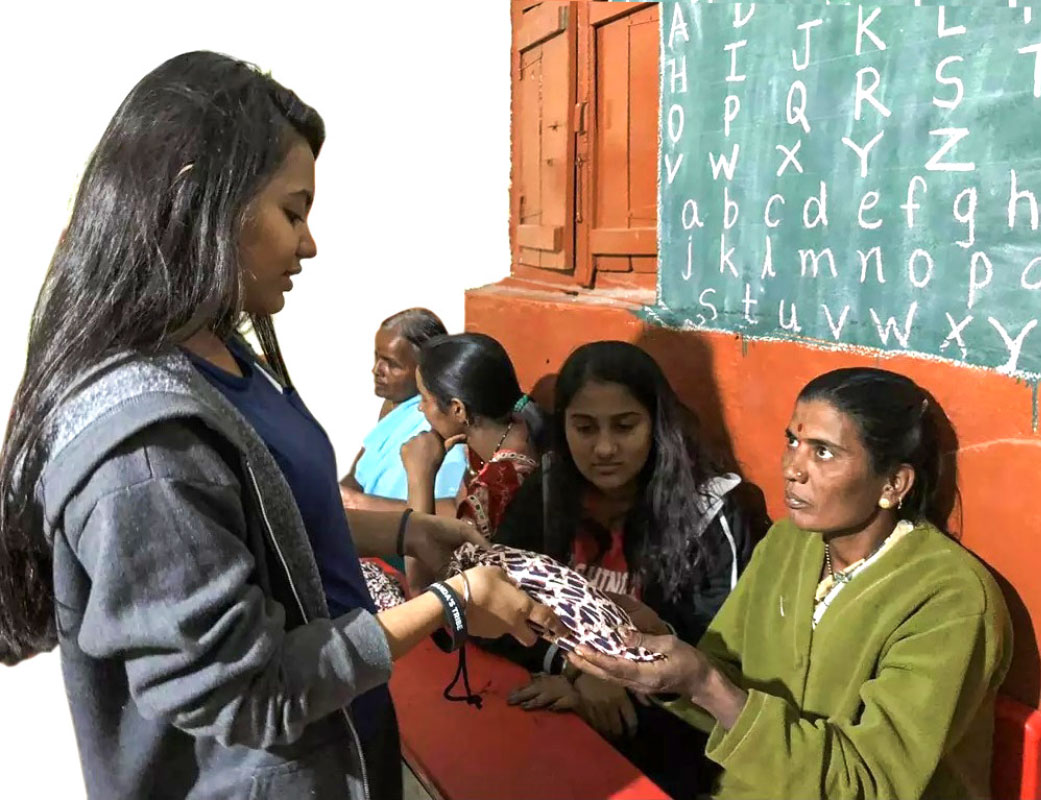
Parikh says the Rotaractors realised that due to drought conditions in these villages, “there was no work in farms and the farmers couldn’t get enough produce for sustenance. We are grateful to RAC H R College, who came to our rescue and built check dams, tanks and wells in these villages.”
The Rotaractors have made this an interactive programme and this project has pages on social media platforms such as Instagram, Facebook and Linked In. For more info: aashayeinadoptavillage.com
Pahunch
As India reeled under the adverse impact of the Covid pandemic, the club members in collaboration with Goonj Foundation, took up the initiative to distribute ration to those severely affected by the pandemic and the resulting lockdown, as well as those devastated by the floods that Mumbai witnessed.
To do this project, “we visited the Backbay bus depot in Colaba and distributed 750kg of ration and 60 additional units of 1litre oil packets to 30 families residing in the Colaba slums. Later, we talked to members of those families to understand what further help they need, so that we can work towards providing it in the future. By doing this project we learnt first-hand that it is in giving, that we receive, and that giving is the new cool,” says Parikh.
In yet another project, this club, realised that the entire world was embracing digital platforms, “and moving ahead, but left behind a good part of our communities, as we moved online.” The result was that several children, who could not afford online tools, were left behind and their education came to a total standstill. So the club came out with Project Pahunch, an initiative to provide online education to the underprivileged kids.
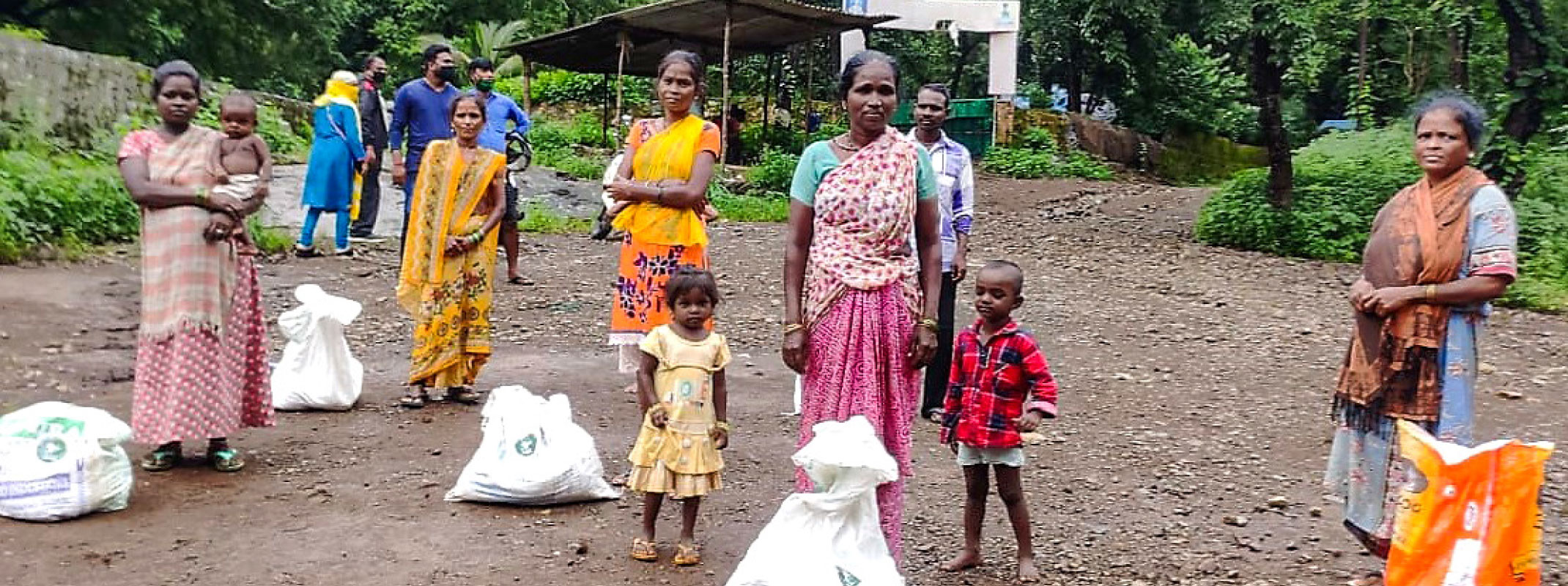
This was done by encouraging people to donate their old phones, tablets and laptops to help such children attend their online classes. Those who didn’t have old phones to spare, donated ₹6,000 to bring a smile on the face of a young child, who was given a new cell phone with this money.
A rap competition
Mic Drop was an online rap battle competition organised by the Rotaract Club of Jai Hind College, RID 3141, in September to give an opportunity to the participants to showcase their talent.
The Rotaract Club of Hinduja College, RID 3141, did a social media initiative on Instagram to raise funds and with the money raised, the members decided to donate food grains to needy tribal families.
The videos of the talented participants who qualified in the first round were shortlisted. After further vetting through an initial round, for the grand finale, the participants had to perform over Instagram Live in front of the chosen judges, who were professional rappers. “The energy throughout the rap battle was very high. The participants were encouraged by a very enthusiastic audience in the comments section of Instagram. The club hopes to organise similar projects in the future,” says club president Urvi Gandhi.
Solace
The second project done by the same club around the same time in September was titled Solace, an international service initiative organised to celebrate World Peace Day on Sep 21.
“We first did a survey to determine how many people are aware about the Middle East crisis, the violence associated with it and its impact on the lives of the local people,” she says.
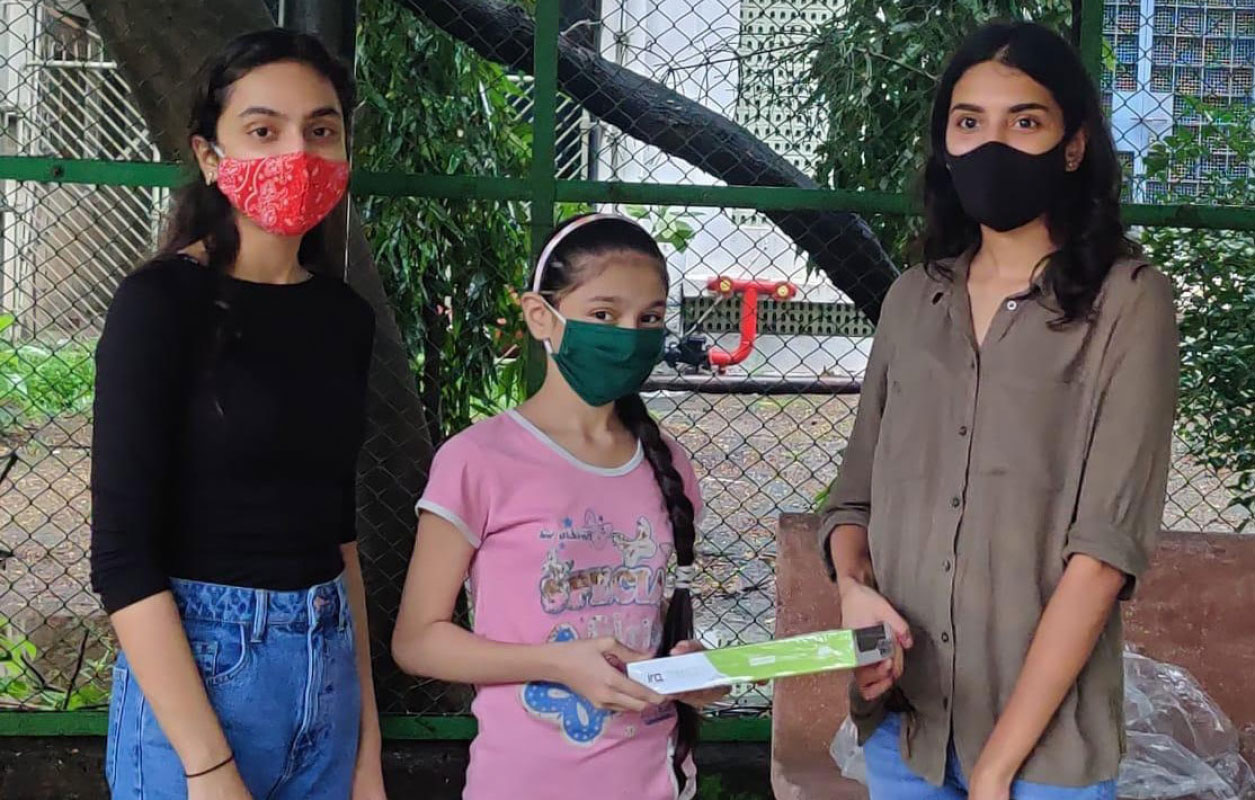
To spread awareness to those who are unaware of this humanitarian crisis, the team posted a video on Sep 21 at 6 pm about the Yemen civil war and the Syrian war, highlighting their impact on the local communities. The team then composed a promotional message, and circulated to various groups, along with details of several websites where donations could be made to help the adversely impacted people.
“We sincerely hope that those who can help with making a donation will do so, and help make the world a better and more peaceful place to live in,” added Urvi.
Dear Me
Following to the T the idiom that charity begins at home, Rotaractors of the RAC Jai Hind College organised in September a zoom meet to assess the mental health of its own members and send out positive signals to deal with stress and tension on any kind. Says Nejvi Safary, club secretary. “Our mental health is as important as our physical health, and many of us have experienced existential crises or stress, anxiety or other emotions similar to these, which act as a catalyst to deteriorate our mental health at some point or the other in our lives.”
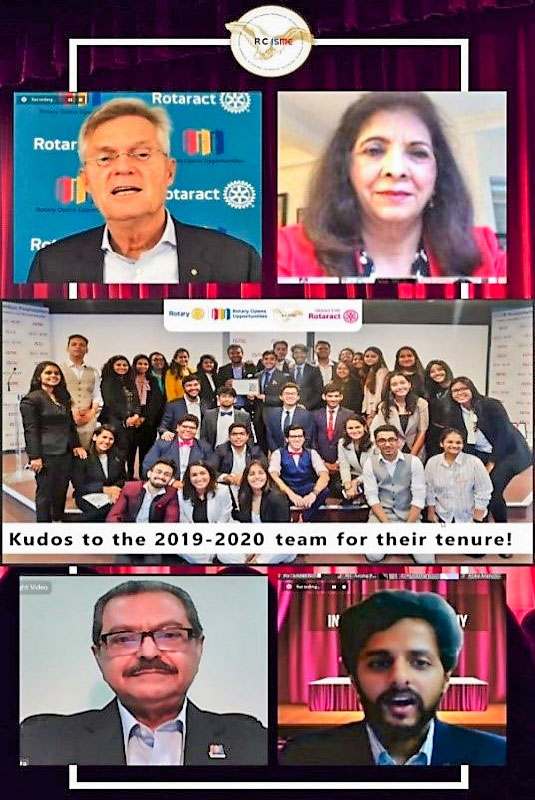
With the current Covid pandemic forcing self-induced quarantine at home and making imperative social distancing norms, “we know everyone, especially teenagers are going through many challenges in order to cope with these feelings.”
Hence the professional development team of the club came up with the idea of organising Dear Me, a unique seminar exclusively for club members, on building a personalised mental health kit. The seminar dealt with various aspects of mental health such as:
- How to cope with stress
- Remembering to love oneself
- Creating and visiting a “happy place” in times of sadness
- Connecting and bonding with people who help and facilitate our mental well-being
- Meditation, yoga, adequate food and rest
- Getting rid of negativity.
In the interactive seminar, where the participants were assured that they were in a “safe space”, a few fun activities and games were organised as a part of the event. Apart from other exercises, the participants were asked to write all toxic and negative aspects of their lives and taught to “delete” them by tearing those sheets or paper.
At the end of the project, the mood in the virtual room was certainly lighter and more relaxed. Participants were advised to remember that they own a special mental health kit. They were also cautioned about the fact that while this project was to help them feel better, they must seek professional help in case they were facing something serious.
Adds Nejvi, “Dear Me was a successful project which got so much positive feedback from the participants. It gave our team immense satisfaction to have organised this project, especially when the members were flooded with messages of how participants have connected with their old friends who make them happy. We intend to repeat such programmes to ensure the continued well-being of our members.”
10 bags of hope
The Rotaract Club of Hinduja College, RID 3141, did a social media initiative on Instagram to raise funds and with the money raised, the members decided to donate food grains to needy tribal families. They put together what the Rotaractors termed “10 bags of hope”, each containing 135kg of raw food grains. Each ‘Bag of Hope’ included 5kg rice, 5kg wheat, 1kg dhal, 1kg sugar, 1litre cooking oil and salt. These bags were distributed to 10 tribal families, said Jeel Thakkar, club president.
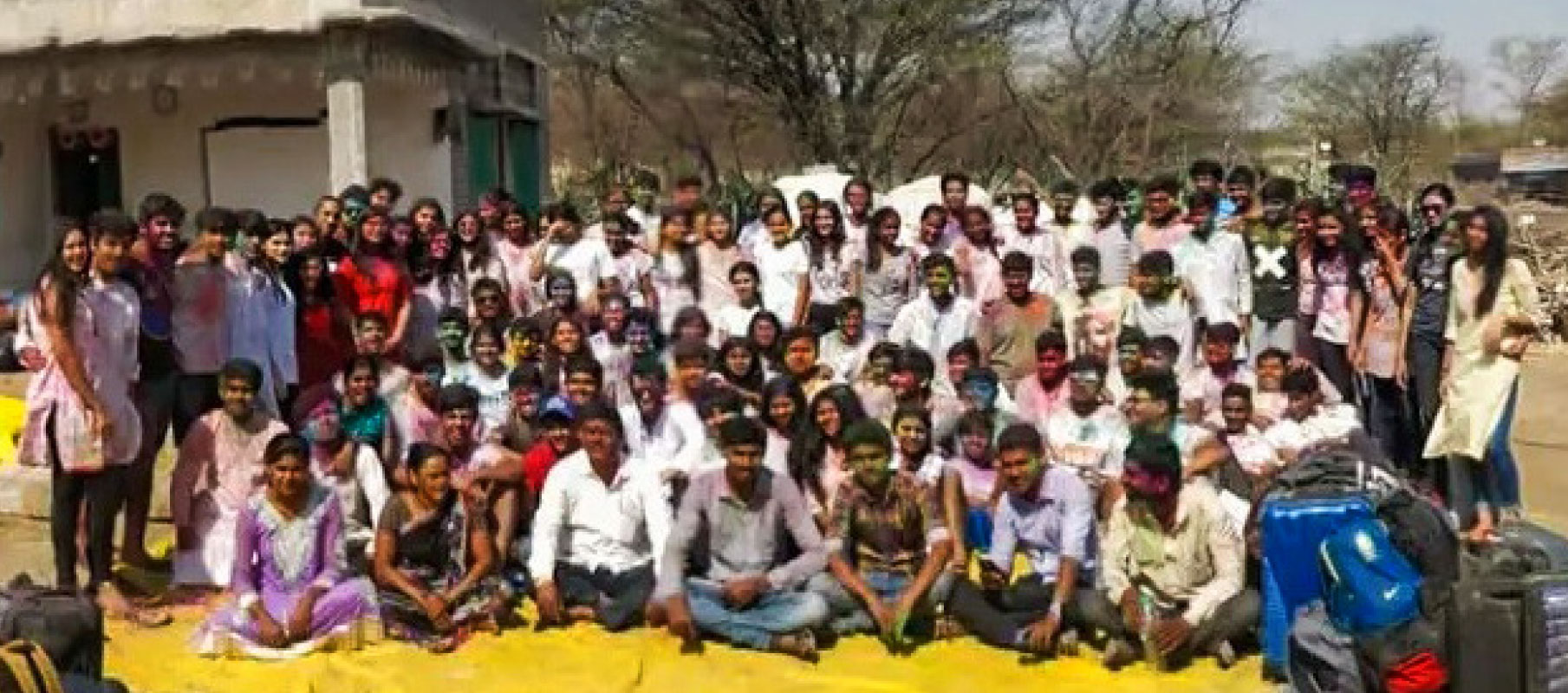
Fly High
On Sep 22, the RAC Indian School of Management and Entrepreneurship, RID 3141, celebrated its 4th installation ceremony, based on the theme Fly High. “As the theme indicates, this year our club hopes to achieve greater heights by inducting new Rotaractors. Because of the pandemic the installation ceremony took place on zoom. The meeting began with a video detailing the club’s activities the previous year, with outgoing president Dhruv Parikh sharing his thoughts on the club’s year-long journey.
The event saw participation from senior Rotary leaders, with RI President Holger Knaack himself addressing the youngsters, and explaining to them why Rotaractors were so important in the Rotary family. He urged the youngsters to seize the opportunity that Rotary provides for their personal growth as community leaders as well as rendering service to their communities.
Rotary Club of Bombay president Framroze Mehta, Rtn Indu Shahani, DRR of RID 3141 Ojas Joshi, and presidents and members of several Rotaract clubs participated. Riya Jain was installed as president for 2020–21 and the club’s theme for the year ‘Lead to Inspire’ was introduced.

